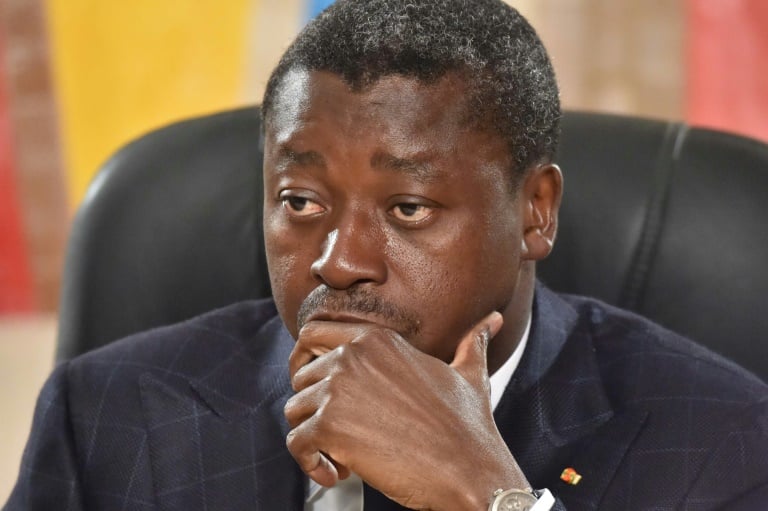From Monday to Friday “all marches are banned. People can meet in a fixed spot” for their public meetings, the minister of territorial administration Payadowa Boukpessi told a press conference.
Marches will still be allowed at the weekend, he added.
“There have been calls for civil disobedience, calls for economic sabotage, even calls for murder issued by protesters targeting the authorities and members of their families as well as security services,” said Adjamagbo-Johnson, explaining the government’s reasons for the ban.
The announcement came just hours after opposition leaders called for another protest march next week.
“The fight continues, To this end, we are already announcing, for Wednesday October 18, a big march towards the offices of (the West African regional group) ECOWAS in Lome,” said Brigitte Adjamagbo-Johnson, coordinator for the main opposition coalition.
Last week ECOWAS spoke in favour of the Togo government’s plans for constitutional changes which the opposition argues do not go far enough.

Togolese President Faure Gnassingbe, in power since the death of his father in 2005, was re-elected in 2010 and again in 2015, in polls that the opposition denounced as unfair
The opposition also said it would refuse to meet with a delegation from the International Organisation of French-speaking countries (OIF) due to arrive in Togo on Tuesday for a visit linked to the political crisis.
There have already been two days of mass protests this month, the seventh in a wave of agitation that began in August. At least four people have been killed and dozens injured.
The government, responding to unprecedented protests from the street, is proposing an overhaul of the constitution under which presidential terms would be limited to two five-year spells in office.
Gnassingbe, in power since the death of his father in 2005, was re-elected in 2010 and again in 2015, in polls that the opposition denounced as unfair.
If the two-term limit applies from the next elections, scheduled in 2020, he could theoretically remain in office until 2030.
As a result, the opposition wants the two-term restriction to be applied retroactively by restoring the 1992 constitution, in order to force Gnassingbe from office.
The president’s father, General Gnassingbe Eyadema, ruled the country with an iron fist from 1967 until his death in 2005.
According to a source close to the presidency, the proposed change to the constitution will be put to a referendum “by the end of the year”.
Download our app and read this and other great stories on the move. Available for Android and iOS.